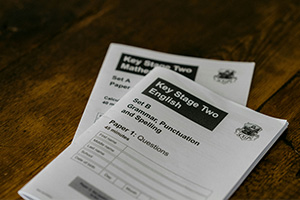13 Essential Steps to Crafting an Impressive Civil Engineer Resume
A resume refers to a written form of a document that sums up your work experience, education, skills, and achievements. It is important to create a CV carefully to get a job in the competitive field of civil engineering. Your resume is the first impression a potential employer will have of you, so it should clearly outline all your qualifications, skills, and experience.
Writing a Resume for a Job with No Work Experience
This article will guide you through the role of a civil engineer and 13 essential steps to crafting an impressive civil engineer resume that can help you secure your next job.
Review Our Extensive List of Free Job Winning Resume Examples For 2024
Understanding the Role of Civil Engineer
While creating a professional resume for a civil engineer, it's important to understand the role of a civil engineer within the industry.
Key Responsibilities
Civil engineers are essential to any infrastructure project. Their key roles include;
- Design and Development: Design infrastructure projects like roads, bridges, and buildings and oversee their construction process.
- Project Management: Manage a project's timeline, budget, and resources by ensuring that the project is completed on time and within the budget.
- Site Supervision: The civil engineer will oversee the construction site to ensure that work is carried out to the design specifications and standard of safety.
- Quality Assurance: Test construction materials to ensure they are of good quality and meet the requirements of the project.
- Environmental Compliance: Ensuring that all projects are done according to the existing environmental laws and sustainable construction works.
- Problem Solving: Solve any engineering problems that may arise on site. This involves finding practical and effective solutions.
- Documentation: Well-detailed reports, blueprints, and documentation on all project work.
13 Essential Steps to Crafting a Winning Civil Engineer Resume
Making a resume can be challenging. Follow these steps prepared by professional resume writers to ensure your resume stands out and showcases your qualifications effectively.
Step 1: Understand the Job Description
Before you start writing your resume, it is very critical to understand the job description one is applying for. Analyse job postings to identify essential skills and qualifications employers are looking for in their candidates. This will help you to customize your resume to match the job requirements, increasing your chances of getting hired.
Step 2: Choose the Right Format
It is important to select the right resume format. The three main types are;
Chronological: Focuses on your work history, listing your most recent job first.
Functional: Highlights your skills and abilities rather than your work history.
Combination: This format is a combination of chronological and functional formats.
For most civil engineers, a chronological resume works best—especially if you have a good work history in the field. However, if you are career-changing or have gaps in your employment record, a functional or combination format might be more suitable.
Step 3: Contact Information
Your contact information should be at the top of your resume. full name, phone number, e-mail address, and a relevant LinkedIn profile. Make sure your email address is professional – something like john.smith@gmail.com is appropriate, while partyboy123@gmail.com is not.
Step 4: Craft a Compelling Summary or Objective
This is a small, one-paragraph summary written at the top of your resume that outlines your qualifications and state your career goals.
Summary: Best for experienced professionals. Summarize your experience and skills into two or three sentences.
Objective: Appropriate for freshers or career changers, aimed to highlight what a career objective is according to a job description.
Example Summary:
"Experienced Civil Engineer with over 10 years of experience in infrastructure development and project management. Proven record of delivering complex projects on time and within budget. Skilled in the use of AutoCAD, project planning, and leading teams."
Example Objective:
"Recent civil engineering graduate seeking entry-level opportunities where I can apply my skills in project management and structural analysis in a dynamic engineering firm."
Step 5: Highlight Your Work Experience
When writing out your work experience, focus on relevant positions. Use bullet points to describe your responsibilities and achievements, beginning with action verbs like "designed," "managed," "led," etc. Quantify the achievements wherever possible to bring out the impact of your work.
Example:
Senior Civil Engineer | ABC Engineering, London
June 2015 – Present
- Led a team of 10 engineers in the development of a £50 million commercial project.
- Conceived and executed innovative structural solutions that reduced costs by 15%.
- Ensured that stakeholders were aligned with meeting the project milestones on time.
Step 6: Showcase Your Education
Your education section should list your degrees and certifications in reverse chronological order. It includes the institution, degree obtained, and the graduation date. If you're a new graduate, then highlight relevant coursework.
Example:
MSc in Civil Engineering | University of ABC
Graduated: 2014
Relevant Coursework: Structural Analysis, Geotechnical Engineering, Project Management
Step 7: Emphasize Key Skills
Include both hard and soft skills related to the area of civil engineering. Format them in bullet points for better readability.
Hard Skills:
- AutoCAD
- Structural Analysis
- Project Management
Soft Skills:
- Team Leadership
- Communication
- Problem-Solving
Step 8: Include Professional Certifications and Licenses
Certification can certainly help build your CV effectively. List any relevant certifications and licenses, such as Professional Engineer (PE) or Project Management Professional (PMP).
Example:
- Professional Engineer (PE) License, State of California
- Project Management Professional (PMP)
Step 9: Highlight Your Technical Proficiencies
Civil engineers often use specific software and tools. Emphasize your proficiency in these areas to highlight your technical capabilities.
Example:
- Proficient in AutoCAD, Revit, and Civil 3D
- Experienced with project management software such as MS Project and Primavera P6
Step 10: Showcase Projects and Achievements
Include a section for projects and achievements that details large projects you have worked on. It includes your achievements in research projects during your academic journey or professional career. Focus on impact and your role in the project.
Example: Analysis of Earthquake-Resistant Structures
- Conducted a research study on the effectiveness of various design techniques for earthquake-resistant structures.
- Utilized computational modeling to simulate structural responses during seismic events.
- Presented results at a national engineering conference, contributing to the development of safer building practices in earthquake-prone regions.
Example: City Centre Redevelopment Project
- Led the structural design for a £20 million city centre redevelopment.
- Applied sustainable construction methodologies to reduce the environmental impact by 25%.
Step 11: Add Professional Affiliations and Memberships
Professional membership is another way to show you're serious about the profession. List all professional organization memberships.
Example:
- Member of the Institution of Civil Engineers (ICE)
- Member of the American Society of Civil Engineers (ASCE)
Step 12: Customize Your Resume for Each Job Application
Customize your resume for each job application. Highlight skills and experiences that best match the description of the job. Use keywords from the job posting to help your resume get past Applicant Tracking Systems (ATS).
Step 13: Proofread and Edit Thoroughly
An error-free resume is essential. Proofread your resume several times, and then get a friend or colleague to review it, as well. Take advantage of resources like Grammarly to help find those mistakes that you missed.
Conclusion
Creating an impressive civil engineer resume requires careful attention to detail and a clear understanding of what employers are looking for. Make sure to follow these 13 imperative steps by our professional resume writers to create a resume that highlights your strengths and increases your chances of landing your dream job. Remember, your resume is a reflection of you – make it count!










